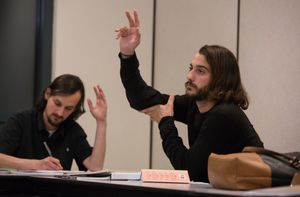
In this program, you will:
- Explore the history of philosophy from its beginnings to the present day.
- Learn how to use reason and logic effectively.
- Construct and analyze complex arguments.
- Study ethics and moral issues.
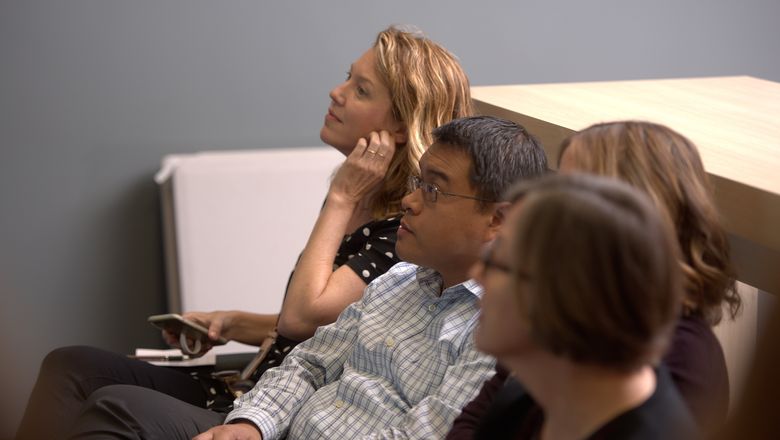
Why do we believe things? What’s the nature of free will? Why are we here?
As a Philosophy student at Chapman, you will engage with all of these questions and many more as you explore the history of philosophical thought. Along the way, you’ll take part in conferences and discussions, develop critical thinking and communication skills and learn how modern philosophy is relevant to the sciences (and vice versa).
By the time you graduate, you’ll be ready to take the next step and apply your knowledge to law, policy, business and so much more.

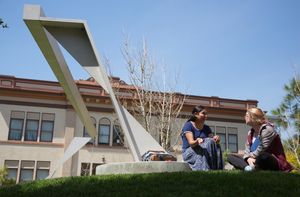
Tell someone you’re studying philosophy and chances are the next thing they say will be “Why?”
That’s not a slight against philosophy. Far from it. Most people just don’t know how practical philosophy is. Philosophy today is less “dusty old books” and “esoteric essays” and more political policy, economics, medical ethics and much more. Philosophy is everywhere. That’s why we’re here to help you land a real job and make a real difference with your philosophy degree.
Unlike most schools, we situate our Philosophy degree firmly within the sciences — not the humanities. We believe that philosophy and science aren’t just relevant to one another; they’re crucial. That's why we help you build a foundation in the history of philosophical thought, then apply it to contemporary topics in the sciences such as sustainability, medical ethics, the impact of technology on human cognition and much more.

Join a passionate community of Philosophy students in one of our many on-campus clubs, such as our Philosophy Club, where you'll get to experience guest lectures and in-depth discussion, or the Phi Sigma Tau philosophy honor society.

You'll have access to a dedicated career team that will help you explore philosophy career paths, plus find internships and jobs.
When you study philosophy at Chapman, there are two areas of emphasis you can choose from: metaphysics and epistemology.
These words might sound difficult to understand, but at their core, they’re simple:
Once you know which area you want to emphasize in, you’ll dive in deep and build your expertise, focusing on the problems that intrigue you the most.
View a sample four-year plan here.
From environmental ethics to quantum mechanics, every philosopher has their niche. We make it easy to double major or earn a minor alongside your philosophy degree so that you can find yours. We have programs in:

Keith Hankins
Associate Professor
hankins@chapman.edu
Dr. Hankins' research interests lie at the intersection of philosophy, economics, and social psychology.
He teaches courses in political philosophy, business ethics, and decision theory (including
game theory and social choice theory), as well as courses in the Humanomics program.

Brennan McDavid
Assistant Professor
mcdavid@chapman.edu
Dr. McDavid is an Assistant Professor of philosophy. Her research areas include ancient
Greek and Roman philosophy.

Kelvin McQueen
Assistant Professor
mcqueen@chapman.edu
Dr. McQueen's primary research interests are the philosophy of science (especially
quantum physics), philosophy of mind, and metaphysics. He teaches courses on philosophy
of science, philosophy of quantum physics, philosophy of mind, metaphysics, logic
and the history of 20th century analytic philosophy.

Michael Pace
Associate Professor, Philosophy Department Chair
pace@chapman.edu
Dr. Pace has research interests in several areas of epistemology and philosophy of
mind, including the nature and epistemology of trust and hopefulness, the ethics of
belief, and the nature and epistemology of sense perception. He teaches courses on
philosophy of mind, epistemology, and logic.
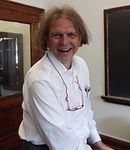
Marco Panza
Professor
panza@chapman.edu
Dr. Panza's current research focuses on areas in the history and philosophy of science,
mathematics, and logic, including Descartes, Newton, the scientific revolution, Frege,
and the origins of analytical philosophy. He is author of well over 100 articles and
books.
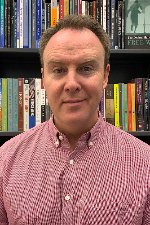
Michael Robinson
Assistant Professor
michaelrobinson@chapman.edu
Dr. Robinson's primary research interests are in ethics, philosophy of action, and
metaphysics — particularly, free will and moral responsibility, human agency, moral
obligation, blame, and punishment. He teaches courses on free will and moral responsibility,
ethics, medical ethics, business and professional ethics and logic.
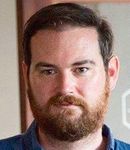
John Thrasher
Assistant Professor
thrasheriv@chapman.edu
Dr. Thrasher’s research focuses on the relation of individual practical rationality
to social rules as well as the way those rules are organized into systems of norms
and institutions.

Bas Van der Vossen
Associate Professor, Director of Law and Liberal Arts Minor
bvanderv@chapman.edu
Dr. Van der Vossen is an Associate Professor of philosophy.

Virginia Warren
Professor
vwarren@chapman.edu
Dr. Warren has published articles on medical ethics, environmental philosophy, philosophy of mind and Kierkegaard. Her current research focuses on developing a new approach to applied ethics, with particular emphasis on justice, equality, and war. She teaches courses in ethics, political and legal philosophy, environmental ethics, medical ethics and philosophy of women/women of color. She is a long-time member of the Ethics Committee of the Children's Hospital of Orange County.
Interested in taking the next step? Learn how to apply or check out our transfer prerequisites.
Want to learn more about Chapman? We are always available for tours and information sessions. We’d love to meet you!
Yvonne Ulloa
Administrative Assistant
Hashinger Science Center 209
yulloa@chapman.edu
(714) 997-6989
Michael Pace
Program Director
pace@chapman.edu
(714) 744-7932
Admissions
admit@chapman.edu
(714) 997-6711